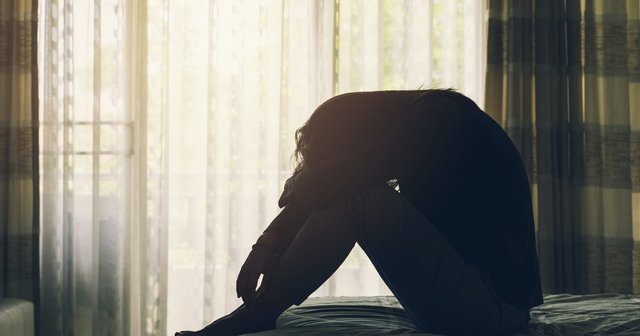13 Signs You’re Depressed

Right now, life seems strange. We're all getting vaccinated and slowly emerging from our shells as a result of COVID-19. Your mood is sure to be negatively affected in such unusual circumstances. However, it's critical to monitor your mental health to ensure you're not dealing with a more serious issue, such as depression.
1. You can’t focus
Do you ever feel like you're going around in circles? Trying to concentrate on the task at hand yet your thoughts drift to the past? It's perfectly natural if you have trouble concentrating on occasion. However, if you find it difficult to concentrate on a regular basis, it may be a sign that you need to consider your mental health.
2. You always want to sleep
Hypersomnia is the term for excessive sleepiness that occurs for no apparent reason. If you're unemployed and trapped at home, you could feel compelled to nap due to boredom or lack of activities. The association between sleep and depression was investigated in a study published in BMC Medicine. "Mood symptoms are frequently described in hypersomnia disorders of central origin," the study stated. If you want to sleep all day, you might notice that it impacts your mood, which might be one of the symptoms of depression.
3. You don’t find joy in your hobbies
Anhedonia is the loss of interest in hobbies and activities that you used to like, according to Psychology Today, and it's linked to depression and other mood disorders: "People who are depressed lose interest in their hobbies, friends, employment, and even eating and sex." You may be depressed if you can't manage to get even a smidgeon of pleasure from completing a crossword puzzle or eating the ideal chocolate chip cookie.
4. You always criticize yourself
While a little self-criticism is healthy, feeling that everything you do is wrong is not only unhealthy, but it could also be a sign of melancholy. "Self-criticism was favorably associated with depression symptoms and negatively associated with self-compassion," according to a study published in Omega.
5. You’re always hungry
"Two-thirds of patients with eating disorders suffer from an anxiety condition at some time in their lives, and roughly 42% had developed an anxiety disorder throughout infancy," according to the Anxiety and Depression Association of America. Binge eating is frequently triggered by an anxiety issue. Boredom could be the source of your uncontrolled hunger, but it could also be a sign of anxiety or despair.
6. You experience body aches
Body aches and other ailments could indicate that you overworked yourself or that you have the illness. However, inexplicable pains could indicate that your mental health is worsening. The Mayo Clinic claims that "Many persons experience inexplicable physical symptoms such as back pain or headaches as a result of sadness. This type of discomfort could be the initial or sole indicator of sadness." If you're starting to get physical aches that don't seem to go away, pay attention to this symptom and think about if you're depressed.
7. You give up on reaching out
It's difficult to keep in touch with friends and family members right now. Social media, video chats, and text messages can all feel impersonal or unpleasant, making you want to avoid social connections altogether. However, if you're having trouble maintaining relationships and feel yourself drifting away, it could be a sign of depression.
8. You stop brushing your hair
When you're stuck at home due to COVID-19, the days might blur together, and it's easy to forget to brush your teeth or stay in your jammies for hours. However, if you've stopped caring about your appearance because you're tired or depressed, it could be a sign of depression.
9. You can’t sleep
Another symptom of sadness is insomnia. If you toss and turn every night, it's not only a symptom that your mental health is in trouble, but it could also be contributing to it. In a study published in the journal Sleep, researchers looked at how insomnia and lack of sleep triggered and aggravated the symptoms of major depressive disorder (MDD).
10. You’re suddenly impulsive
It's reasonable to get a little stir-crazy if your schedule has flipped-flopped due to COVID-19. One day, you might decide to buy a ping-pong table for the garage, and the next, you might decide to totally redecorate your living room. However, if you begin to engage in impulsive behavior that is damaging to your health, you should be concerned.
11. You’re never hungry
The appetites of individuals diagnosed with depression were examined in a study published in the American Journal of Psychiatry. According to the study, 35% of depressed participants had an increase in appetite, whereas "about 48% of adult depressive patients reported depression-related appetite declines." It's possible that you're depressed if you're not hungry and your food consumption has reduced.
12. You feel hopeless
The coronavirus's social distance criteria are hazy, and the timeline is unclear. It's understandable if you feel dismal about the situation at times, particularly if your children are out of school or you've lost your work as a result of the pandemic. However, a persistent sense of hopelessness may indicate that you require assistance to avoid depression.
13. You’re irritable
Depressed participants were assessed and their irritation levels were questioned about in a study published in The Journal of Nervous and Mental Disease. "55.1 percent of the participants replied 1 (I get upset or irritated more readily than I used to), and 18.1 percent of the participants answered 2 (I get annoyed or irritated more easily than I used to"), according to the study. Irritability that is unexplained and unmanageable may be more than a vexing side effect of social isolation.